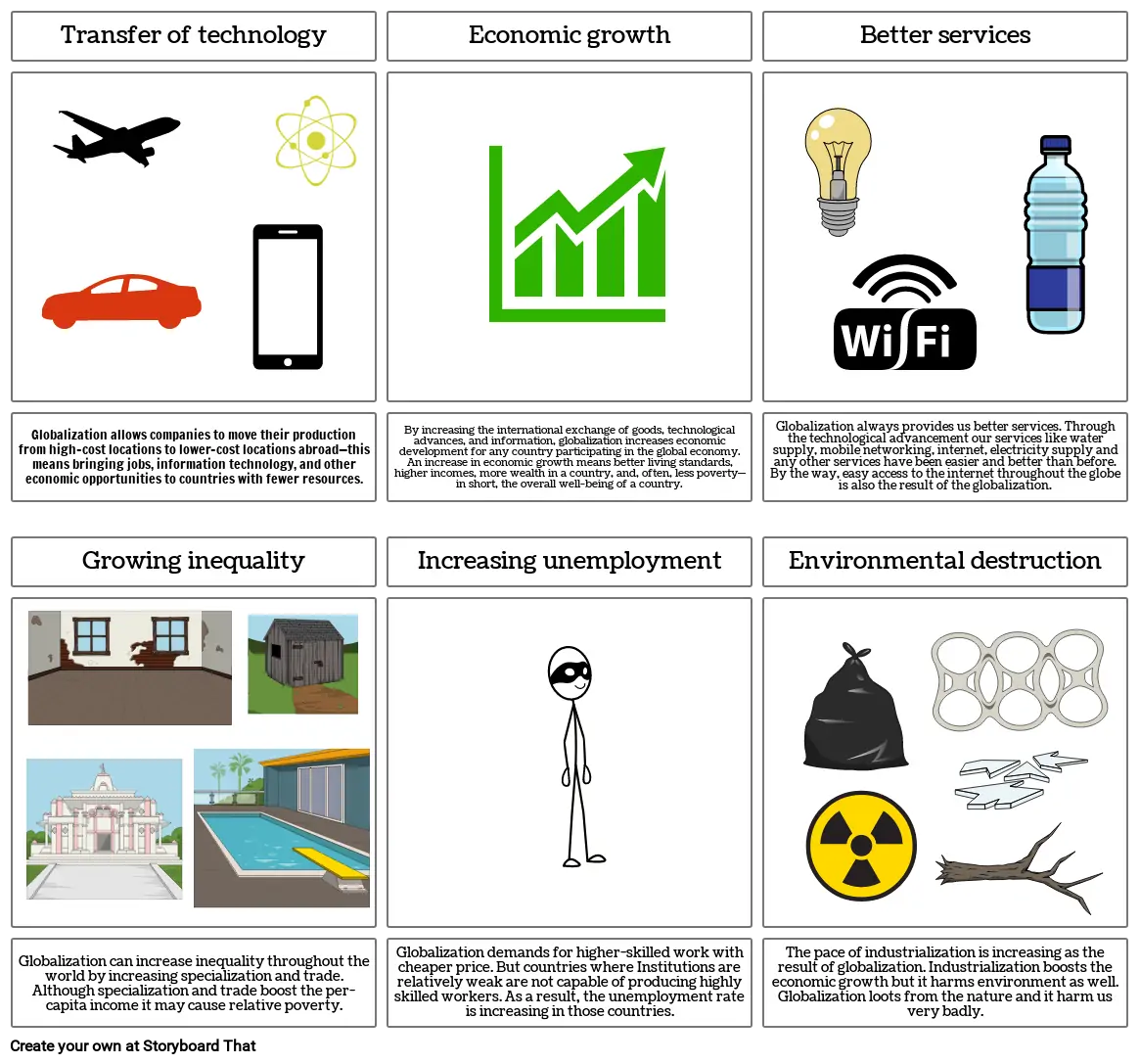Debate

Storyboard Tekst
- Transfer of technology
- Economic growth
- Better services
- Globalization allows companies to move their production from high-cost locations to lower-cost locations abroad—this means bringing jobs, information technology, and other economic opportunities to countries with fewer resources.
- Growing inequality
- By increasing the international exchange of goods, technological advances, and information, globalization increases economic development for any country participating in the global economy. An increase in economic growth means better living standards, higher incomes, more wealth in a country, and, often, less poverty—in short, the overall well-being of a country.
- Increasing unemployment
- Globalization always provides us better services. Through the technological advancement our services like water supply, mobile networking, internet, electricity supply and any other services have been easier and better than before. By the way, easy access to the internet throughout the globe is also the result of the globalization.
- Environmental destruction
- Globalization can increase inequality throughout the world by increasing specialization and trade. Although specialization and trade boost the per-capita income it may cause relative poverty.
- Globalization demands for higher-skilled work with cheaper price. But countries where Institutions are relatively weak are not capable of producing highly skilled workers. As a result, the unemployment rate is increasing in those countries.
- The pace of industrialization is increasing as the result of globalization. Industrialization boosts the economic growth but it harms environment as well. Globalization loots from the nature and it harm us very badly.
Izrađeno više od 30 milijuna scenarija

